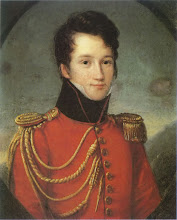Science
and Philosophy
H
|
ugh
Everett Everett
The Many Worlds theory, in which all possibilities are realized, allows
for low measure universes, that is, universes of low probability. Ours is
surely one of them. This planet should have become a radioactive wasteland
during the Cold War and in the majority of universes it is precisely that.
The idea that there are at least
10>500 identical copies of ‘me’ (Lewis calls them ‘counterparts’), all
typing these words together, reminds me of the Buddhist Net of Indra, the Net
of Pearls like mirrors, each reflecting all the others. Even as I type, some of
these counterparts are dropping dead, going insane or simply not bothering to
finish this sentence because they have decided to make love to their wives or
mistresses. More prosaically, some pause for a cup of tea or take the dog for a
walk. I stubbornly keep on typing. If I suddenly decided to toss a coin and
then perform some crazy action like standing on my head and signing the Polish
national anthem if it turned up heads, or locking myself in the wardrobe and
singing in Welsh if it turned up tails, in what way would the fall of the coin
alter the measure of this particular world?
Some philosophers argue that the
existence of an infinity of worlds subverts all ethics. This is untrue. We can
be concerned only with the ethics of our own world. Our duty is to ensure that
we help to maximise the total good of this world. The rest do not concern us.
Much of what passes for thinking is
no more than speculation. ‘There might be fairies at the bottom of my garden’.
There might, but I would have to prove it to myself and to others before I
could take this thesis seriously. A thesis must be falsifiable, as Popper says
and this one is not falsifiable. Some critics of David Lewis’s brilliant On the Plurality of Worlds, which puts
forward a thesis he arrived at through modal realism, not through scientific
observation, argue that if this is true then, since there are worlds where we
are wrong about almost everything and this may be one of them, we should all be
sceptics. In my darker moments I suspect ours may be just such a world.
The Earl of Kildare was dottily
convinced in 1938 that both Serbia British
Empire . No wonder it did not survive the war. The marvel is that Britain Britain
Lewis’s theory advocates “genuine
modal realism without overlap, and with qualitative counterpart relations” (On the Plurality of Worlds, 259). I am
not so sure about the lack of overlap. It is possible that UFOs come from
parallel universes.
Lewis says we should believe in
possible worlds “because the hypothesis is serviceable, and that is a reason to
accept it is true” (ibid. 3). Similarly, Paul Dirac used to say that we should
accept an equation because it was beautiful and that was a reason to believe it
was true. Keats would have agreed with Dirac (Beauty is truth, truth beauty…), Jeremy Bentham with Lewis. I am
with Keats and Dirac. It is gratifying to see poetry link hands with
mathematics. Empson, a mathematician and a poet, would have enjoyed this.
The Many Worlds theory exemplifies
the Aristotelian principle of plenitude. ‘If a proposition P is possible, then
at some time P is true’. Possible here
can be understood in various ways – logically, metaphysically, nomologically,
epistemologically, temporally and conceivably. A thing being nomologically
possible is the most convincing of these.
Just as a successful criminal lawyer
needs to be something of a crook, so a successful philosopher needs to be
something of a cynic. Otherwise, like Mencius, who thought human beings were
all born good, he will go wildly astray on the question of human nature. But
one has to be cynical to begin with to aspire to become a cynic.
COPYRIGHT (C) 2010 J D FRODSHAM




No comments:
Post a Comment